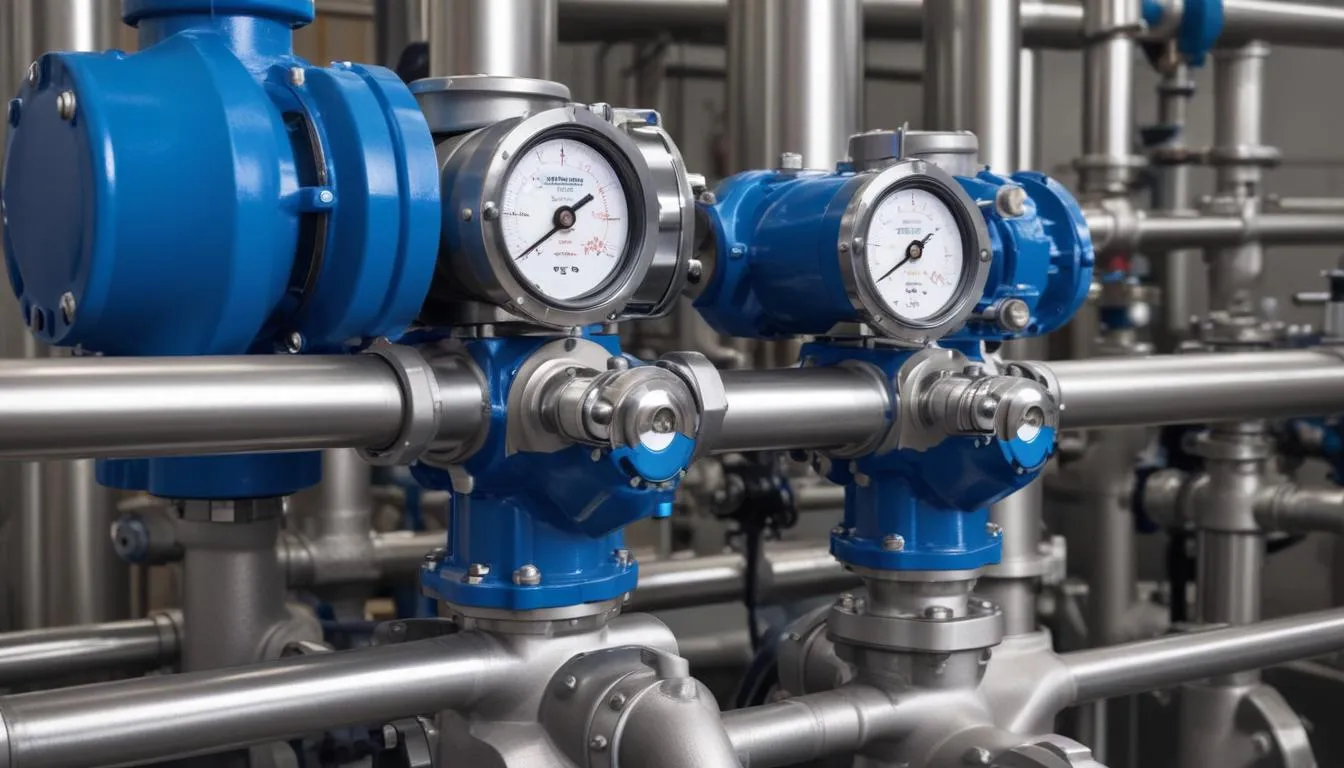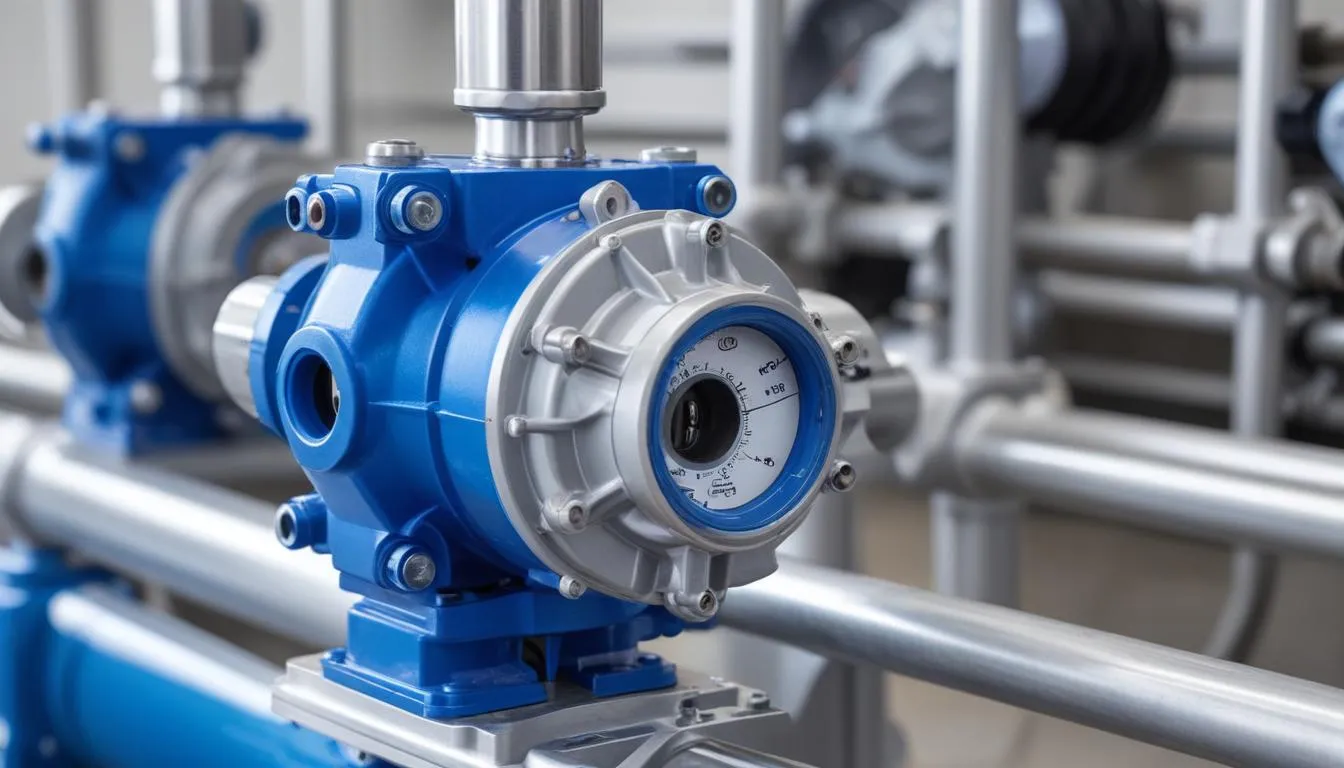 A diaphragm metering pump is a precision pump designed to deliver a specific volume of fluid in a controlled manner. Unlike traditional pumps, these devices utilize a diaphragm that oscillates to create suction and pressure, enabling the pump to draw in and expel a predetermined amount of liquid with each cycle. This oscillating mechanism can be powered by various means, including electric motors, pneumatic pressures, or hydraulic fluid, depending on the application and the specific design of the pump.
A diaphragm metering pump is a precision pump designed to deliver a specific volume of fluid in a controlled manner. Unlike traditional pumps, these devices utilize a diaphragm that oscillates to create suction and pressure, enabling the pump to draw in and expel a predetermined amount of liquid with each cycle. This oscillating mechanism can be powered by various means, including electric motors, pneumatic pressures, or hydraulic fluid, depending on the application and the specific design of the pump.
The primary operational components of a diaphragm metering pump include:
- Diaphragm: The flexible barrier that separates the pumping chamber from the fluid, allowing for controlled movement and preventing backflow.
- Drive Mechanism: This can be mechanical, hydraulic, or pneumatic, providing the necessary force to flex the diaphragm.
- Pumping Chamber: The enclosed space where the liquid is drawn in and expelled with each movement of the diaphragm.
- Valves: Typically, one-way check valves help to ensure the proper flow direction of the fluid into and out of the pumping chamber.
Diaphragm metering pumps operate based on precise stroke lengths and rates, which can be adjusted to meet the specific flow and pressure requirements of various applications. This level of control makes them particularly useful in processes that require exact dosing of chemicals or fluids, minimizing over or under-delivery of substances.
Another key feature of these pumps is their capability to handle highly abrasive or corrosive materials, depending on the construction materials used for the diaphragm and pump housing. This adaptability further enhances their functionality across a range of environments, from wastewater treatment to chemical processing and food and beverage manufacturing.
The effectiveness of a diaphragm metering pump in providing accurate and repeatable dosing contributes significantly to maintaining process integrity and operational efficiency in various industrial settings.
Advantages and Disadvantages of Diaphragm Metering Pumps
Diaphragm metering pumps present a range of benefits and some limitations that are essential to consider when selecting a pump for specific applications.
Advantages of diaphragm metering pumps include:
- Accurate Flow Rates: One of the standout features of diaphragm metering pumps is their ability to deliver precise flow rates, often within ±1%. This high level of accuracy is crucial in applications that require exact chemical dosing, thus reducing waste and enhancing product quality.
- Self-Priming Ability: These pumps can effectively handle a variety of liquids, including those with low vapor pressures, thanks to their self-priming capabilities. This feature allows them to draw fluid from a lower elevation, which can be advantageous in many installation scenarios.
- Corrosion Resistance: With customizable materials for their construction, diaphragm metering pumps can be equipped to handle corrosive and abrasive materials. The use of specialized diaphragms made from materials such as PTFE or Viton ensures durability and longevity in harsh environments.
- Pulsation Dampening: Many diaphragm metering pumps come with mechanisms to reduce pulsation, delivering a more consistent flow that is essential for sensitive applications such as chemical dosing in food processing and laboratory settings.
- Simple Maintenance: The design of diaphragm pumps typically allows for easy access to components, making maintenance tasks simpler and less time-consuming. Routine checks and replacements can often be performed with minimal downtime.
However, there are also disadvantages to be aware of:
- Limited Temperature and Pressure Variations: Diaphragm metering pumps have operational limitations regarding the temperature and pressure they can handle. Exceeding these parameters can lead to diaphragm failure or reduced performance, making them unsuitable for some high-temperature or high-pressure applications.
- Possible Diaphragm Wear: Over time and with continuous use, diaphragms can wear out, leading to leaks or a decrease in pumping efficiency. This necessitates periodic replacement, which can add to operational costs.
- Chemical Compatibility Issues: Despite their ability to handle various fluids, not all diaphragm materials are compatible with every type of chemical. It is essential to select the appropriate materials to prevent degradation or pump failure.
- Higher Initial Costs: Diaphragm metering pumps can be more expensive compared to simpler mechanical pumps due to their advanced technology and construction materials. The initial investment might be a consideration for organizations with budget constraints.
- Noise Levels: While often quieter than other pumps, certain models can generate noise during operation, particularly when coupled with inadequate installation or mounting protocols, which may require additional noise-reduction solutions.
Understanding these advantages and disadvantages is vital for selecting the right pump for specific operational needs while balancing performance requirements with budgetary constraints.
Applications of Diaphragm Metering Pumps
 Diaphragm metering pumps are widely utilized across various industries due to their precise dosing capabilities and adaptability to diverse applications. The following outlines some key fields where these pumps are particularly advantageous:
Diaphragm metering pumps are widely utilized across various industries due to their precise dosing capabilities and adaptability to diverse applications. The following outlines some key fields where these pumps are particularly advantageous:
- Chemical Processing: Diaphragm metering pumps are critical in chemical manufacturing, where exact measurements of corrosive and hazardous liquids are often necessary. Their ability to handle aggressive substances without risk of contamination makes them ideal for transporting acids, solvents, and other chemicals. They can also be modified to include specific materials that increase their service life when dealing with such substances.
- Water Treatment: In water and wastewater treatment facilities, diaphragm metering pumps are commonly employed for the accurate dosing of chemicals such as chlorine, coagulants, and pH adjusters. Their self-priming capabilities and ability to handle varying flow rates ensure that the necessary chemical levels are maintained for effective treatment processes.
- Food and Beverage Industry: The food sector requires stringent adherence to safety and quality standards, making diaphragm metering pumps ideal for applications involving additives and ingredients. Their capability to deliver precise and consistent dosing contributes to product quality control, whether it be in blending flavors or adding preservatives.
- Pharmaceutical Manufacturing: In pharmaceutical applications, where precision and purity are paramount, diaphragm metering pumps provide exact dosing of active ingredients and other formulation components. They minimize the risk of contamination and can be easily sanitized, making them compliant with stringent industry regulations.
- Agriculture: Diaphragm metering pumps play a significant role in agricultural practices, particularly for the controlled application of fertilizers and pesticides. The ability to accurately dispense liquid nutrients ensures effective crop management while reducing the risk of chemical runoff and undesirable environmental impact.
- Textile Industry: In textile processing, these pumps are employed to manage the viscosity of dyes and other chemical solutions. Their precise control of flow rates is essential for ensuring the even distribution and application of coloring agents.
In addition to these fields, diaphragm metering pumps are also used in laboratories for precise reagent dispensing, in oil and gas for enhanced oil recovery processes, and in various manufacturing settings where liquid materials need to be accurately metered and controlled. The versatility of diaphragm metering pumps extends to their capacity to function in both continuous and batch processes, making them a reliable choice for a broad spectrum of industrial applications.